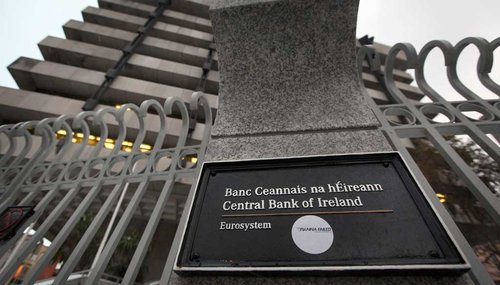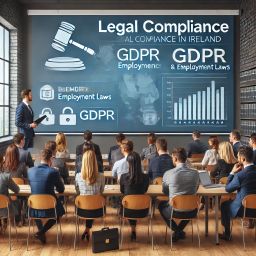

Specialized airside vetting services follow strict security protocols and specific compliance measures. Checkback's expertise in Airside Pass and Known Consignor vetting provides complete screening processes that meet BS7858 security standards.
Companies like Kuehne + Nagel have ongoing partnerships with vetting providers, showing the value of reliable screening in this sector.
Types of Background Checks Required in Ireland
Can International Candidates Be Vetted for PSA Compliance?
Organizations can use multiple screening services, including registered judgments, directorship histories, and bankruptcy reports.
The process includes contacting the institutions directly, reviewing accreditation status, and confirming certificate authenticity. Organizations may ask for additional documents, like translated certificates or transcripts.
Background checks in Ireland follow standardized processing periods that change based on the type and scope of verification needed.
Support teams work during business hours Monday through Friday to help with processing and answer questions during the vetting procedure.
This monitoring supports reliability in the security industry and builds public confidence. Companies following vetting rules protect themselves from legal issues and improve their standing with customers.

How Long Do Vetting Results Remain Valid After Initial Completion?
When implementing pre-employment screening, organizations should follow established protocols that protect both the employer and candidate while following relevant legislation.
5.References: Previous client reviews show provider reliability. Strong customer support indicates good service quality.


This approach allows Irish organizations to participate in cross-border tenders while maintaining consistent vetting standards across European operations.
3.Data retention periods must be specified, with personal information deleted after it is no longer needed for the screening purpose.
PSA background checks generally apply to individuals who meet minimum working age requirements according to their local employment laws. Most employers conduct these checks on job candidates who are old enough to work legally in their jurisdiction.

Different sectors need particular vetting procedures, such as anti-fraud checks for Airside Pass applications, consumer credit assessments of bankruptcy and insolvency records, and additional screening for cash-in-transit roles.
2.Processing Time: Delays can slow down hiring processes. Quality providers deliver fast results while maintaining thorough research.
Cross-Border Screening Procedures

The Private Security Authority (PSA) requires vetting for all security personnel working in Ireland. Criminal Records Check The background checks must cover a five-year history period or start from when the person left secondary education, whichever occurred more recently.
What Are the Costs Associated With International Background Checks?
Pre Employment Check Ireland Pre-employment checks in Ireland help verify the suitability and credibility of potential employees, especially in jobs where trust and security matter most.
A background check in Ireland involves reviewing a person's criminal, financial, or personal records to assess their suitability for a role or position.
The duration can vary but typically takes between 1-2 weeks, depending on the type and complexity of the check.
Garda vetting is a specific type of background check required in Ireland for individuals working with children or vulnerable adults, involving checks against police records.
Yes, you must obtain consent from the individual before conducting any background checks in Ireland.
Not for all employees, but certain sectors such as healthcare and education may require comprehensive checks.
It includes checking for any criminal convictions or offences recorded against the individual.
Yes, individuals can request their own background checks in Ireland for personal review or to prepare for employment screenings.
Skipping background checks can lead to hiring unsuitable candidates, which may result in legal and reputational risks.
Yes, police clearance is a general criminal record check, while Garda vetting is specific to roles involving vulnerable groups and includes more detailed investigations.
You can request transcripts or degrees directly from educational institutions or use third-party services that specialize in educational verifications.
Information about spent convictions, certain types of personal data, and other protected characteristics under GDPR is off-limits unless specifically relevant and lawful to access.
International checks may involve additional complexities such as different laws, languages, and longer processing times.
No, background checks do not affect your credit score as they do not involve a credit inquiry that would impact the score.
Best practices include securing data in compliance with GDPR, limiting access to authorized personnel, and ensuring data is stored for only as long as necessary.
It depends on the industry and role, but typically every 2-3 years or when significant changes occur in the individual’s role or responsibility.
While not specific by law, many IT positions require checks due to access to sensitive or proprietary information.
GDPR regulates the processing of personal data, ensuring that background checks are conducted in a lawful, fair, and transparent manner.
Yes, but it must be done lawfully and with the individual’s consent, considering the relevance to the role.
Penalties can include fines, legal actions, and reputational damage, depending on the severity of the non-compliance.
Remote work has increased the importance of thorough background checks, especially for those in positions of trust or handling sensitive data.
Best practices include conducting similar checks as for permanent staff, especially if they have access to sensitive or critical areas.
Ensuring fairness involves following consistent procedures, obtaining consent, and allowing candidates to dispute inaccuracies.
Yes, it’s recommended to tailor background checks based on the specific risks and requirements of each position.
Signs include transparency about services, compliance with legal standards, positive reviews, and strong data protection practices.
Handling involves assessing the relevance to the job, discussing findings with the candidate, and considering legal and ethical implications.